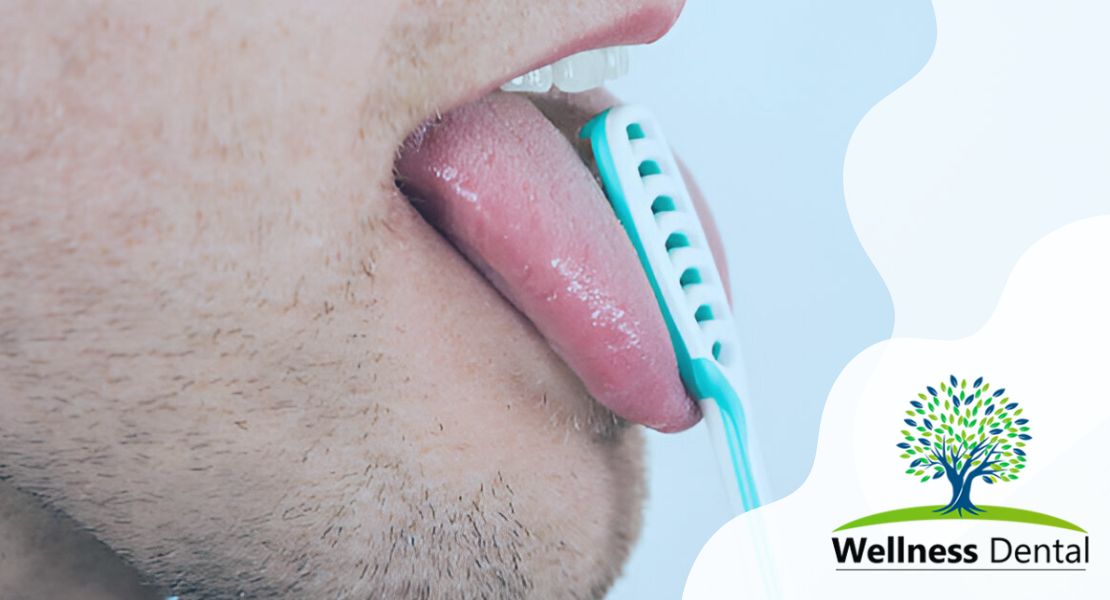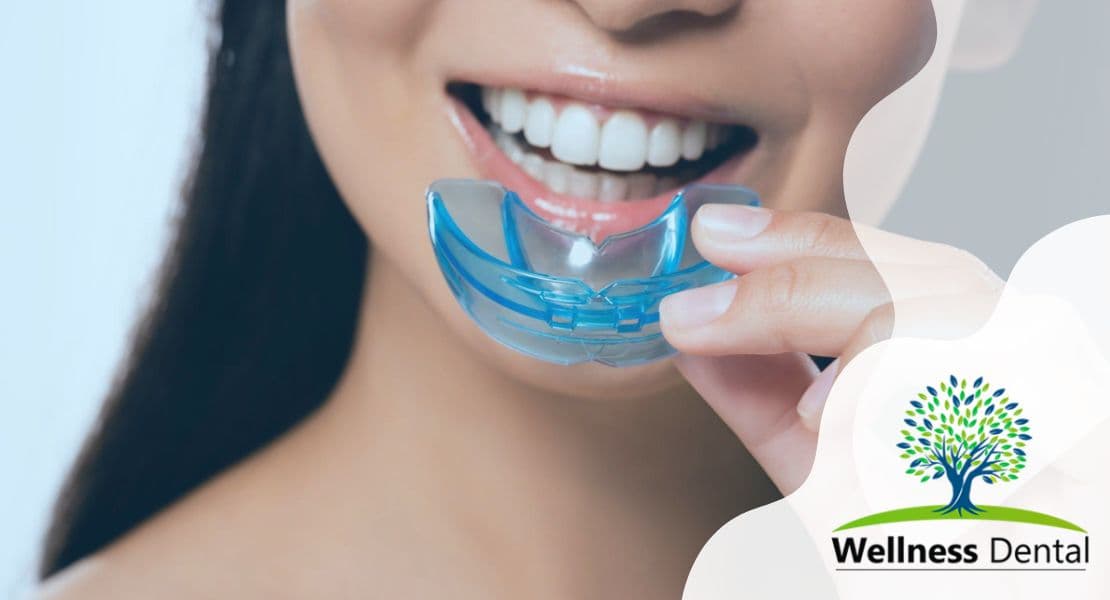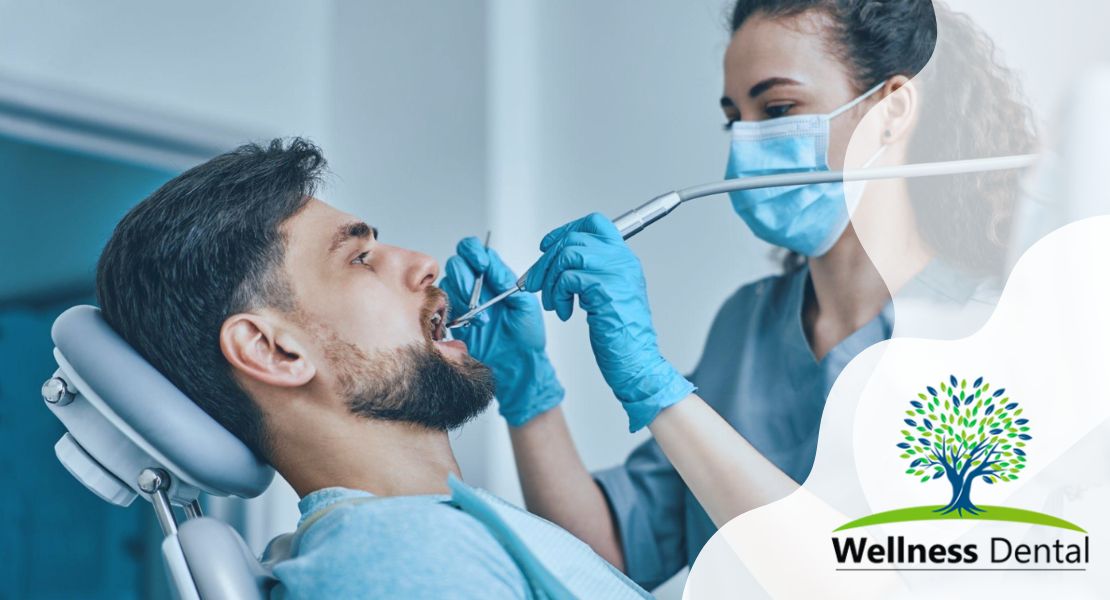What’s a tongue scraper?
A tongue scraper is a tool used for cleaning the tongue’s surface, removing any bacteria, food particles, or debris that may be present. It is designed to improve oral hygiene and combat bad breath.
Tongue scrapers are typically made from materials such as stainless steel, copper, or plastic. Stainless steel tongue scrapers are the most common and are highly durable. Copper scrapers are believed to possess antimicrobial properties. Plastic scrapers are often cheaper and come with various designs.
The scraper usually consists of a long, thin handle with a flat, curved head. The head of the scraper is gently placed at the back of the tongue, and with a scraping motion, it is moved forward along the surface. This action helps remove the accumulated plaque, bacteria, and debris from the tongue. The design of the head may vary, with some scrapers having multiple edges or ridges to enhance the cleaning process.
What is the significance of cleaning your tongue?
Cleaning the tongue is an essential part of maintaining good oral health and has a significant impact on overall health. The tongue can harbor an immense amount of bacteria, food debris, and dead cells, which can lead to bad breath and various oral health issues if not properly addressed.
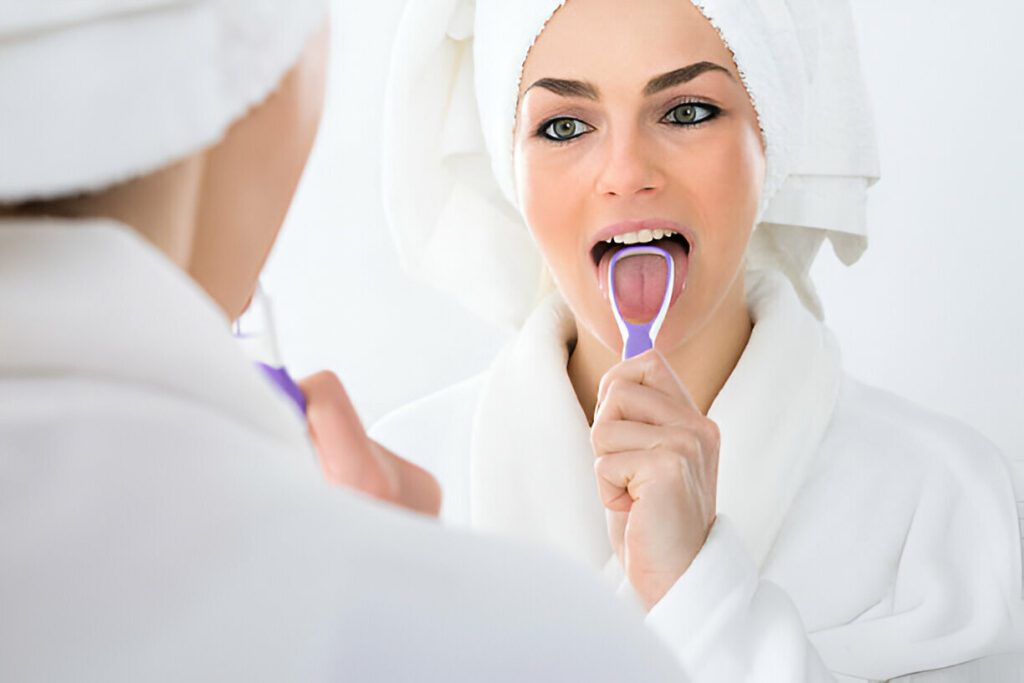
The tongue provides a favorable environment for bacteria to thrive due to its rough surface and papillae, the tiny bumps on its surface. These bacteria can produce sulfur compounds, creating a foul odor and causing bad breath. Moreover, the accumulation of bacteria on the tongue can contribute to the development of plaque, leading to tooth decay and gum disease. These oral health issues are not only uncomfortable but can also have far-reaching consequences on general health.
The buildup of bacteria, food debris, and dead cells also affects the taste sensation. When the taste buds on the tongue are coated with this layer of buildup, it hinders their ability to properly transmit taste signals to the brain, significantly reducing the ability to appreciate flavors. This can lead to a decrease in food enjoyment and potentially affect nutrition.
To prevent these problems, tongue scraping is a highly effective method to remove the buildup on the tongue. This involves gently scraping the surface of the tongue with a specially designed scraper or a toothbrush. Tongue scraping not only reduces bacteria and food debris but also refreshes the breath and enhances taste sensation. It is a simple and quick practice that can greatly contribute to improved oral hygiene and overall well-being.
By regularly cleaning the tongue through tongue scraping, one can maintain a healthier mouth, fresher breath, and a better taste experience. It is a small but impactful step towards achieving optimal oral and overall health.
Is it worth getting a tongue scraper?
If you’re wondering whether or not you should get a tongue scraper, there are several benefits to consider. Firstly, using a tongue scraper can help improve your oral hygiene by reducing the build-up of bacteria on your tongue. This can lead to fresher breath and a healthier mouth overall. Tongue scrapers are particularly effective at removing the microbial film that can accumulate on your tongue, which is often the primary cause of bad breath.
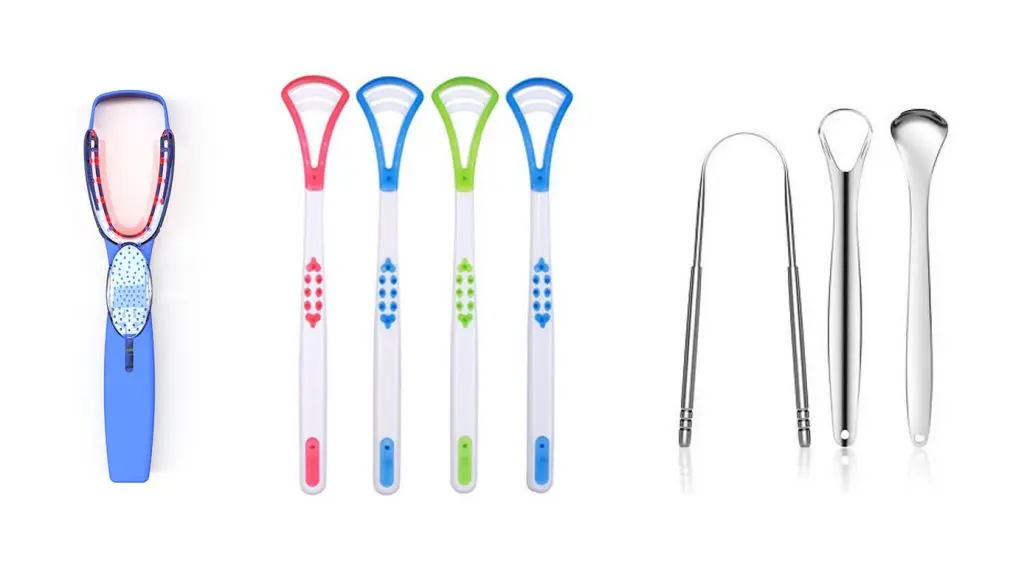
When choosing a tongue scraper, it’s important to consider the material. Stainless steel scrapers are popular due to their durability and ease of cleaning. Look for one with a comfortable grip and a broad, curved edge to ensure effective scraping. There are also plastic tongue scrapers available, which can be a more affordable option while still being effective.
The recommended frequency for using a tongue scraper is typically once daily, preferably in the morning before brushing your teeth. To properly clean and maintain your tongue scraper, rinse it thoroughly after each use, using warm water and a bit of mild soap if necessary. You should also sanitize it regularly by either soaking it in an antimicrobial mouthwash or boiling it for a few minutes.
Replacing your tongue scraper regularly is important to maintain its effectiveness. Stainless steel scrapers can last a long time with proper care, but it’s recommended to replace them every 6-12 months. Plastic tongue scrapers may need to be replaced more frequently, around every 3-6 months.
Eliminates bacteria and dead cells
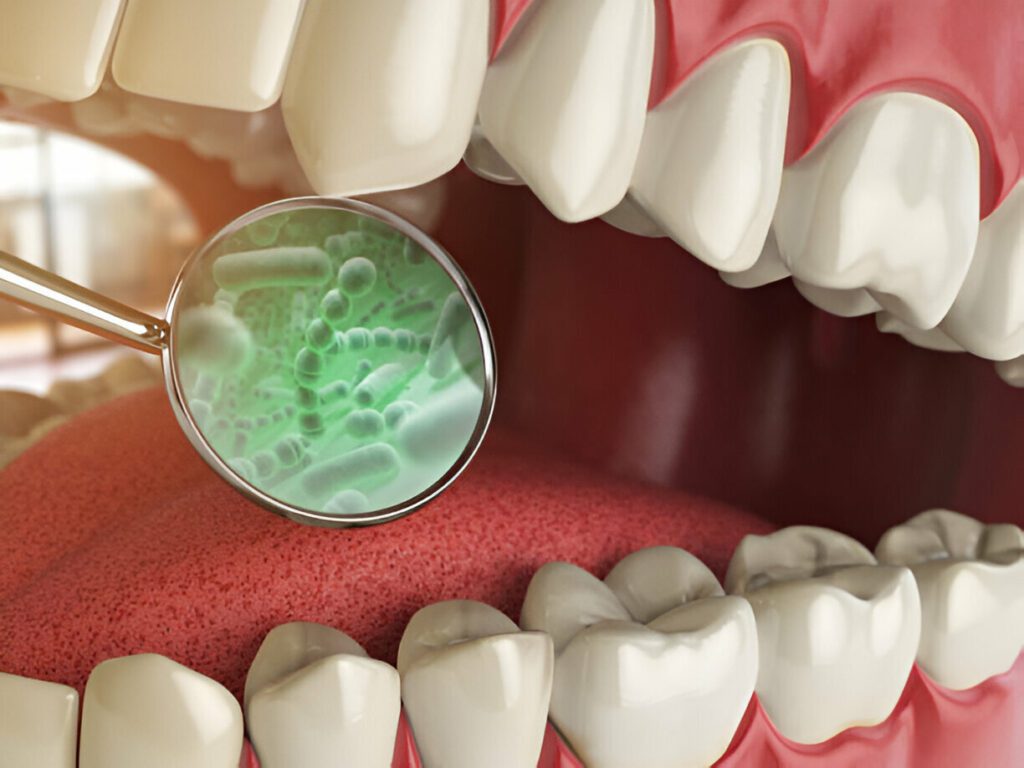
When we wake up in the morning, our tongue is often coated with a white or yellowish film. This film consists of bacteria, food particles, and dead cells that have accumulated overnight. By scraping the tongue, we are able to remove this buildup, preventing it from spreading further into the oral cavity.
Tongue scraping not only promotes oral hygiene but also helps eliminate impurities that cause oral odor. Bad breath, or halitosis, is often caused by bacteria that accumulate on the tongue. By regularly scraping the tongue, we are able to reduce the population of bacteria responsible for this unpleasant odor.
Additionally, tongue scraping aids in maintaining overall oral health. Bacteria and dead cells can contribute to various oral issues, including tooth decay, gum disease, and oral infections. By regularly removing these impurities, we reduce the risk of developing such problems.
Fresher Breath

Studies have shown that tongue scraping can significantly reduce bad breath and decrease the presence of cavity-causing bacteria. One study found that tongue scraping, along with regular brushing and flossing, led to a decrease in bad breath indicators by up to 75%. Another study demonstrated a reduction in cavity-causing bacteria on the tongue’s surface after using a tongue scraper.
Incorporating tongue cleaning into your brushing routine is an easy and effective way to combat halitosis. After brushing your teeth, gently scrape your tongue from back to front with a tongue scraper. Rinse the scraper between each swipe to remove any bacteria or debris.
The benefits of tongue scraping go beyond just fresher breath. By removing the bacteria and particles from the tongue’s surface, we also improve our overall oral health. This simple addition to your daily routine can make a significant difference in reducing bad breath and maintaining a cavity-free mouth. Say goodbye to bad breath and hello to a fresher, healthier mouth with tongue scraping.
Enhances Taste Perception
Tongue scraping, a simple practice of gently scraping the surface of the tongue, can significantly enhance taste sensation and provide a more enjoyable eating experience. This age-old Ayurvedic technique offers numerous benefits, primarily by removing accumulated buildup on the tongue that can dull the taste buds.
The buildup on the tongue consists of food debris, bacteria, dead cells, and toxins. Over time, this accumulation can create a coating on the tongue, making it difficult for taste buds to come into direct contact with the food we consume. Consequently, our taste perception diminishes, leading to a less vibrant and satisfying experience of flavors.
By using a tongue scraper, this unwanted buildup can be effectively removed. The scraper, usually made of metal or plastic, is gently moved from the back to the front of the tongue, effectively dislodging the debris that has adhered to its surface. This action not only eliminates the coating but also stimulates the taste buds, which lie beneath the accumulated layer. With a clean and stimulated tongue, taste buds become more responsive, thereby enhancing the overall taste sensation.
The improved sense of taste resulting from tongue scraping allows us to fully appreciate the flavors, textures, and complexities of the food we consume. By eliminating the dulling buildup, we can experience the true essence of the ingredients, making each bite more enjoyable and satisfying. Therefore, incorporating tongue scraping into our daily oral hygiene routine can significantly enhance our eating experience and contribute to a greater enjoyment of food.
Convenient and Easy to Use
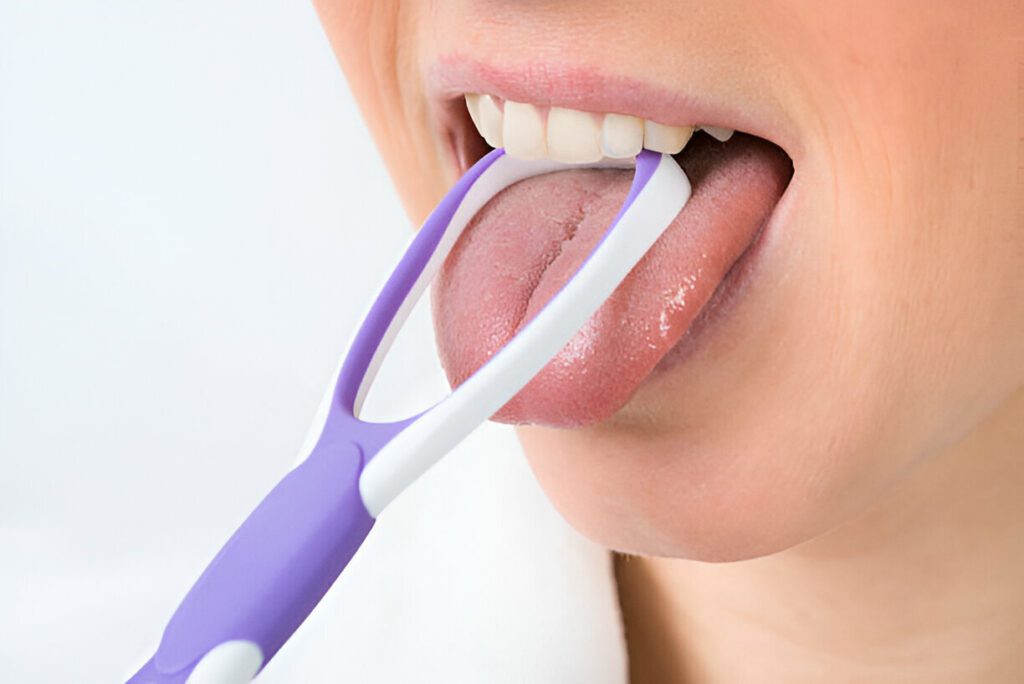
Tongue scraping is an incredibly convenient and accessible addition to one’s daily oral care routine. This simple yet effective practice offers numerous time-saving benefits while being incredibly easy to apply.
One of the most significant advantages of tongue scraping is the minimal time and effort it requires. By dedicating just a few seconds to this practice each day, individuals can effectively remove residual bacteria, food particles, and plaque from the surface of their tongue.
Unlike brushing or flossing, tongue scraping does not demand excessive time or complicated movements. This makes it an ideal option for those with busy schedules or for those who struggle with maintaining a consistent oral care regimen.
Furthermore, tongue scraping seamlessly integrates into an individual’s daily routine without causing any disruption. It can effortlessly be incorporated into the morning or evening brushing routine, immediately before or after brushing.
For example, after applying toothpaste to their toothbrush, individuals can quickly scrape their tongue using a tongue scraper, and then proceed with their regular brushing routine. This integration requires minimal extra time but yields significant benefits, promoting fresher breath and improved oral hygiene.
Improves Oral Health
Tongue scraping is a simple yet highly effective practice that can greatly improve oral health. By gently scraping the surface of the tongue, this technique promotes cleaner teeth and gums, fresher breath, and enhanced taste perception.
One of the main benefits of tongue scraping is that it removes bacteria and debris that often accumulate on the surface of the tongue. This buildup can lead to plaque formation, tooth decay, and gum disease. By regularly scraping the tongue, these potential oral health issues can be significantly reduced, resulting in healthier teeth and gums.
While tongue scraping is an important part of oral hygiene, it should be incorporated into a comprehensive routine. This includes using fluoride-based toothpaste and mouthwash, brushing teeth and gums at least twice a day, flossing daily, drinking plenty of water, and avoiding tobacco products. By combining these practices, oral health can be significantly improved, leading to a healthier mouth and overall well-being.

